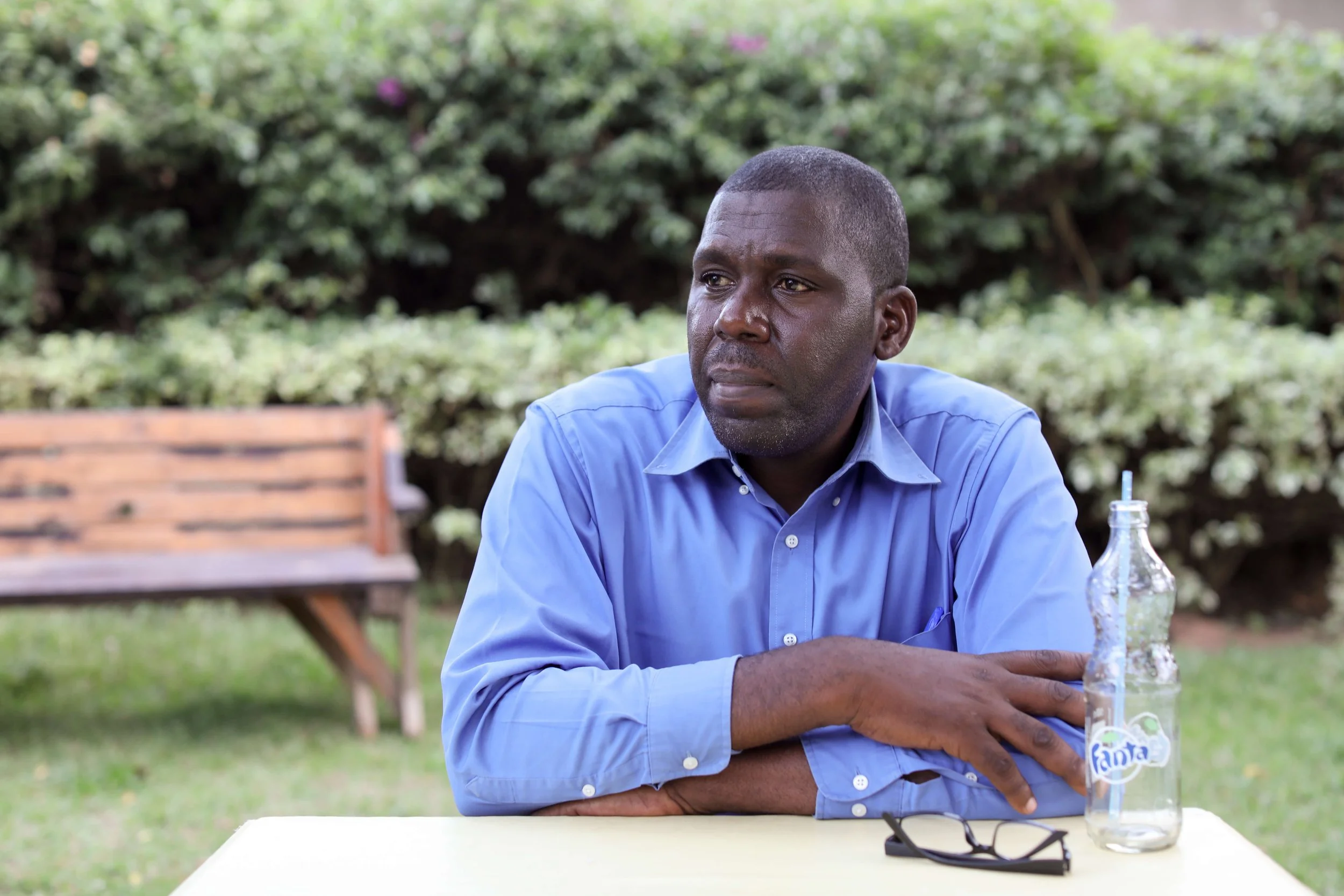The Rescuers
“My husband and I were shopkeepers at the time of the genocide. We sold groceries on one side of the shop, and on the other side we had a bar. On the night the president’s plane was shot down, the place was full. Everyone was dancing and listening to music. We heard a large explosion but didn’t think anything of it. Everyone just went back to dancing. But the next morning people began shopping frantically. We were selling food in large quantities. When we were down to the last 100 kilograms of potatoes, I decided not to sell anymore. I could tell that danger was coming. Nobody came to the bar that night. The streets were empty and quiet. People were either planning violence, or they were hiding. We were one of the first cities to be liberated during the genocide. So almost immediately there was fierce fighting throughout the city. The killers knew they had to murder as quickly as possible. They were herding groups of Tutsis onto bridges and shooting them all. My husband and I had a reputation for being friendly with Tutsis, so we were suspected of being traitors. Our neighbors began watching us closely. We feared for our lives. We had a lot of property, so we knew there was a big incentive to murder us. When the first Tutsis came to us looking for shelter, we turned them away. But one night I was walking near the house, and I heard a close friend calling to me from a tree. He was dying of hunger. It had been raining all day. I said to myself: ‘The property isn’t worth it,’ and I invited him inside. I didn’t even inform my husband.”
“It was too dangerous to hide the man in the house. So I brought him to this small room in the back, which we sometimes rented to tenants. I pushed him inside and locked the door. When I was opening our shop the next morning, another man came running to me for help. He was limping badly. He was out of breath and drenched in sweat. I recognized him as a prominent Tutsi businessman. ‘Save my life!’ he screamed. ‘They are chasing me!’ So I quickly pulled him to the back of the house and locked him in this same room. A few minutes later the killers arrived. They searched all over the main house, but never checked the back room. Over the next few days, six more people came looking for help. We hid them all. But my neighbors had been spying on us. They reported everything. And one night the killers showed up with guns. When they knocked on the door, my husband started shivering and couldn’t stand up. I told him: ‘You’re the man of the house. You must stand firm and face them.’ But he couldn’t move. So I went to the door myself. The killers were standing there with a list of the people hiding in our house. ‘Where are these cockroaches?’ they said. I tried to tell them that we had no cockroaches, but they pushed past me and started searching. They beat my husband until he was unable to speak. I offered them all the money we had, and only then did they stop. But they told us that they’d be coming back during the daylight for a house-to-house search.”
“The killers formed a search party the next morning. They gathered at the top of the hill. We could see them coming toward us, searching every house along the way, and pulling out more people to join the hunt. The mob was growing very big. I knew that the end was upon us. But the fighting was very intense that day. Rockets were flying over our head, and some of them began landing on the hill. One landed so close to the search party that they scattered in different directions. I pulled everyone out of the hiding place and moved them to the forest behind our house. Every night I’d wait until the streets were empty, and I’d bring them food. For two weeks it went on like this. I rationed what little we had. I lost all my weight because I was too scared to eat. My breasts completely disappeared. I didn’t even feel like a woman anymore. I’d nearly given up on life. Every morning I’d pray for the day to finish. And every night I’d pray for the morning to come. My husband wanted us to escape. The only reason we remained in Kigali was to feed those people. And after three weeks the capital finally fell. The Rwandan Patriotic Front was advancing, and the Hutu boarded busses to flee the city. Even the people who were hiding told me to abandon them. So I gave them each a final ration of food and escaped. But all of the people hiding on this property were rescued. And every single one of them is alive today.”











